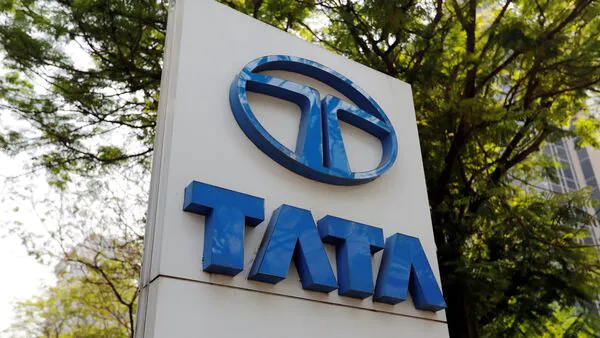To make it easier for owners of electric vehicles (EVs) to swap and resell their vehicles, Tata Motors, the nation’s largest manufacturer of EVs, has begun collaborating with used car marketplaces. “We have been working on opportunities for facilitating EV resale / exchange for those owners who are looking to upgrade to a new EV,” an official from the firm told Business Standard. We are now in the early stages of our plans and are doing a small-scale test with online marketplaces for old cars.
At an estimated 170,000 units, the company boasts the largest electric vehicle (EV) parking lot in India. The business has already begun working as a pilot with Spinny, an online marketplace for secondhand cars. Used Tata Nexons are available for purchase on the platform, despite the fact that Spinny and Tata Motors choose not to comment on the issue. On the marketplace, a 2021 Nexon EV XZ Plus is priced in Mumbai at Rs 11.61 lakh. The price range for a brand-new Tata Nexon EV is Rs 12.49–16.49 lakh.
According to dealer sources, EV prices usually drop in step with those of their internal combustion engine (ICE) equivalents. In the first year, this is about 25%; after that, utilization (kilometers traveled and battery life) determines how much is used. According to a Tata Motors representative, there will likely be a three to four year lag between the new and used EV markets.
Tata Motors’ EV plans
As early adopters upgrade to longer-range and more sophisticated EVs, the used EV market is anticipated to closely match the new EV market with a lag of three to four years. EV sales are expected to peak in 2021–2022. Therefore, the first wave of upgraders will appear in 12 to 24 months, the representative stated. According to two Tata Motors dealers in Mumbai, they have already begun receiving requests from clients looking to trade in their Tiago or Nexon EV for a new Tata EV.
“When swap requests arise, we are making every effort to comply. A dealer from the eastern suburbs of Mumbai stated, “It would be great if the company ties up with used EV buying marketplaces as rate standardization remains a challenge in this category.” An official from a used automobile marketplace explained that purchasing a used EV from a marketplace had the advantage of a warranty.

Since battery warranties last eight to ten years, a growing number of value- or budget-conscious consumers are starting to consider purchasing secondhand electric vehicles. With careful consideration to charging cycles, these batteries have a significantly longer lifespan. One can get up to 2,000–3,000 cycles of charging. 52 charges a year would result from charging once a week. Another CEO stated, “Or a three- to four-year-old EV would have probably only been charged 200 times.”
“The EV is ready to use and the batteries can be changed if necessary. The expense of purchase is a significant barrier to EV adoption. The person thought that used EVs might be the solution. A representative for Tata Motors said that used EVs will still offer a compelling value proposition for those who would rather test a less expensive EV. Before purchasing a new EV, this will assist consumers better understand the benefits of their use case.
“They will also be chosen by budget-conscious consumers with high running use cases due to their innately low running costs and guarantee of the residual powertrain warranty period,” he continued. Tata Motors has been making an effort to more evenly match the prices of its ICE and EV vehicles. Chief commercial officer of Tata Passenger Electric Mobility Vivek Srivatsa stated earlier in September that the company’s sole goal at Tata.ev is to “mainstream EVs by breaking barriers and making EVs more accessible to regular car buyers.” By offering these exclusive, time-limited rates, we are removing the obstacle of high EV acquisition costs. We are bringing their costs more in line with comparable cars that run on gasoline or diesel.
Srivatsa was discussing Tata Motors, particularly EVs, at festive discounts. As a result, EV sales for the corporation have struggled in FY25. EV volumes (at 16,600 units) declined sharply by 13.9% in Q1 FY25, despite Tata Motors PV wholesales overall declining by 1.1%. This was attributed to a strong decline in the fleet category.
The managing director (MD) of Tata Motors Passenger Vehicles and Tata Passenger Electric Mobility, Shailesh Chandra, previously stated that the EV sector was impacted by the overall industry trend as well as the notable decline in fleet sales in Q4 FY24. This is because the FAME II subsidy would expire in March 2024. “As a result, the fleet segment saw a significant decline, which is anticipated to recover in the upcoming quarters, while the personal segment retails have grown slightly,” he had stated.
In order to guarantee that buyers of EVs and solar rooftops incur no ongoing expenditures, the business has recently begun offering bundled contracts with Tata Power. “Owning an EV will become even more beneficial as more people start installing solar rooftop panels,” an official from the firm told Business Standard. Consequently, other companies such as Maruti Suzuki, which intend to introduce EVs, have stated that they intend to provide the customer with a ‘holistic’ EV ecosystem.
We have conducted some fundamental research, stated Partho Banerjee, senior executive officer of marketing and sales at Maruti Suzuki India, last week. We have more planned than just the product launch. Customers who become a member of this EV family will receive a full ecosystem from us. The three main issues are the EV charging infrastructure, range anxiety, and the EV’s residual value after five years of use. Right now, nobody can predict what an electric vehicle’s residual value will be.
EV buyers can expect a guaranteed residual value from luxury automakers like Mercedes-Benz. For example, the newly introduced EQS SUV will fetch a 60 per cent residual value after three years, and 45,000 kilometers.